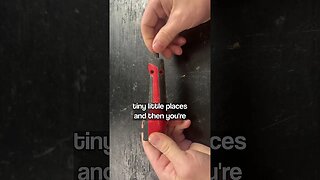What are Timeclocks and How Do They Work?
Join this channel to get access to perks:
https://www.youtube.com/channel/UCB3jUEyCLRbCw7QED0vnXYg/join
Most electricians in the skilled trades have come across time clocks (24-hour electrical timers or dawn to dusk) in their careers at least once. But what are they used for and how do they work? In todays episode of Electrician U, Dustin tackles this question.
🤘⚡️MEMBERSHIP⚡️🤘
JOIN ELECTRICIAN U - become a member and get:
FREE Continuing Education every year
FREE Practice Exams
FREE Monthly Video Courses
FREE Weekly Live Instructor-Led Classes
FREE Monthly Educational Newsletter
Premium Members-Only Content
Private Discord Channel
Monthly Members-Only Discord Chats
Sign up here --- https://www.electricianu.com/electrician-u-membership/
🎧🎹MUSIC AND VIDEO:🎹🎧
https://www.facebook.com/descantmv
🎬✍️ART AND ILLUSTRATION:✍️🎬
https://www.daverussoart.com
In essence, a time clock is a big switch that turns on & off electrical equipment (usually lights, but can be used to actuate any electrical equipment really) at certain times of the day. The time clock differs from a standard switch, however, and does the switching between on/off without the need for someone to actually flip the switch. The clock mechanism is electrically run and the on/off times are manually set upon initial installation of the clock on the clock dial itself. These on/off actuators are referred to as “trippers”. The installing electrician puts the respective on/off trippers on the clock face at the times they want the load being controlled by the clock to come on and go off. As the clock spins around, those trippers move a mechanical lever that either closes the contact (and power goes to the load) or opens the contact (and power goes off to the load). So once the clock is installed, the on/off times are set, and the loads installed/wired, the time clock is relatively self sufficient and requires no external input from anyone.
Time clocks are available in single pole or two pole and are available in a few different voltage ranges. Again, they are most often used to control some type of exterior light fixtures, but can be used to control any load you want to come on/go off at a particular time. Regardless of what you are using it to control, make sure you check the clocks rating vs. the load you are trying to control. If you need to control several circuits worth of lights/equipment or large equipment, consider using the time clock to control a contactor (or rather the control circuit that controls the contactor). Another way you can link the timeclock with some other type of control would be to use the clock to control a photocell. That way if its not dark yet when the time clock says to come on (for instance in the summer when its lighter outside longer), the photocell wont send power to the equipment until its dark enough.
Another thing that can be done is to put multiple trippers on the dial face. So, your lights will come on at say 700 when your employees are leaving, turn off when they have all left by 800, stay off all night as the buildings unoccupied, then come back on at say 0500 when they are returning and back off again at 0700 when its light outside again. A tip to save some aggravation. Make sure you tighten the trippers to the dial face really well as the spinning action will tend to make them come loose over time. Another point to keep in mind is that mechanical timeclocks will need to be reset to account for time changes and also adjusted periodically.
There are also digital timeclocks available. Same concept without the mechanical clock spinning around! Some of these models can be programmed with several different on/off settings and can also account for time changes, so they don’t need to be adjusted as frequently. BMS (Building Management Systems) or Lighting Control Panels can also be used as a time clock of sorts and some of these can even be monitored remotely via ethernet and can turn lights on/off without having to be at the building itself!!
We hope this has been helpful in understanding how time clocks work and what they are used for. Is there a topic you would like to see discussed on Electrician U? Leave us a comment in the comments section and let us know. Please continue to follow Dustin and Electrician U as we are constantly updating our content to assist our followers in becoming the best electricians that they can be.
#electrician #electrical #electricity #what #are #timeclocks #and #how #do #they #work
-
 0:56
0:56
Electrician U
6 months ago90° Drill Attachment!!! - What Hand Tools Are YOU Missing
5.09K1 -
 1:44:50
1:44:50
jeffahern
2 hours agoMonday Madness with Jeff Ahern (6AM Pacific)
8.15K2 -
 25:18
25:18
CarlCrusher
13 hours agoCurse of the Skinwalker | The Ancient Mystery of Magic Mesa - Full Documentary | Part 5
806 -
 32:00
32:00
Blue Siesta ASMR
18 hours agoASMR General Knowledge Quiz | 10 Questions Soft Spoken
1.44K3 -
 13:38
13:38
JoBlo Horror Originals
1 hour agoWhat Happened To Texas Chainsaw Massacre (2022)?
1.04K -
 10:50
10:50
Yarnhub
4 hours agoWW1 Balloon Buster and the Chinese Balloon
1.09K2 -
 12:33
12:33
Degenerate Jay
1 day agoAssassin's Creed 2's Best Feature Changed The Series Forever
1.43K1 -
 1:21:37
1:21:37
Roseanne Barr
2 days ago $103.27 earnedKevin Sorbo saves America | The Roseanne Barr Podcast #49
159K566 -
 8:13:09
8:13:09
Akademiks
20 hours agoIs It OVER for DRAKE?? Industry and Fans Turned on him? Cassie Tryna not get CHARGED w/ Diddy?
92.1K162 -
 3:57:39
3:57:39
FusedAegisTV
16 hours agoMax Payne 3 (2012)... For Real Now | When Western Games Weren't Ghey #1 RUMBLE CREATOR HOUSE EDITION
46.5K21